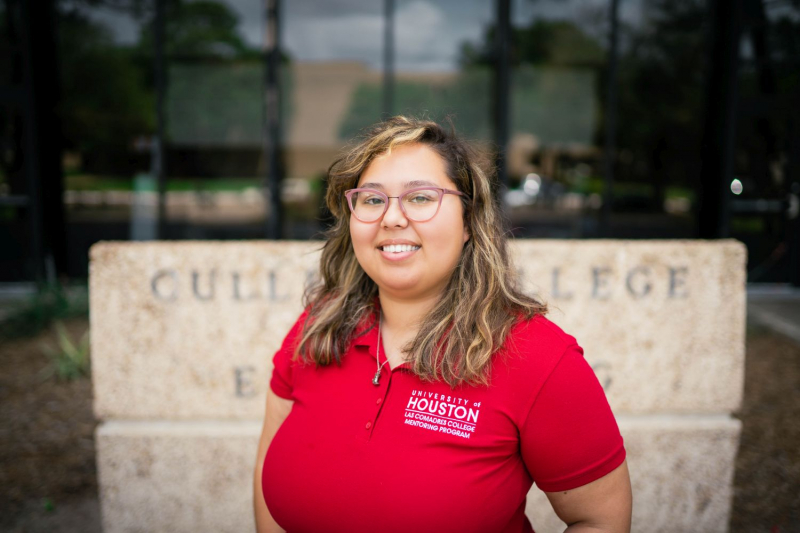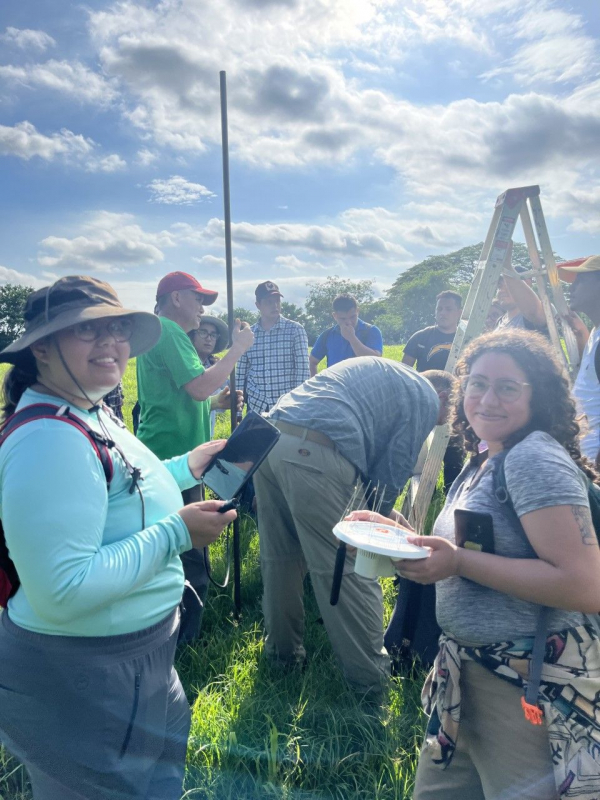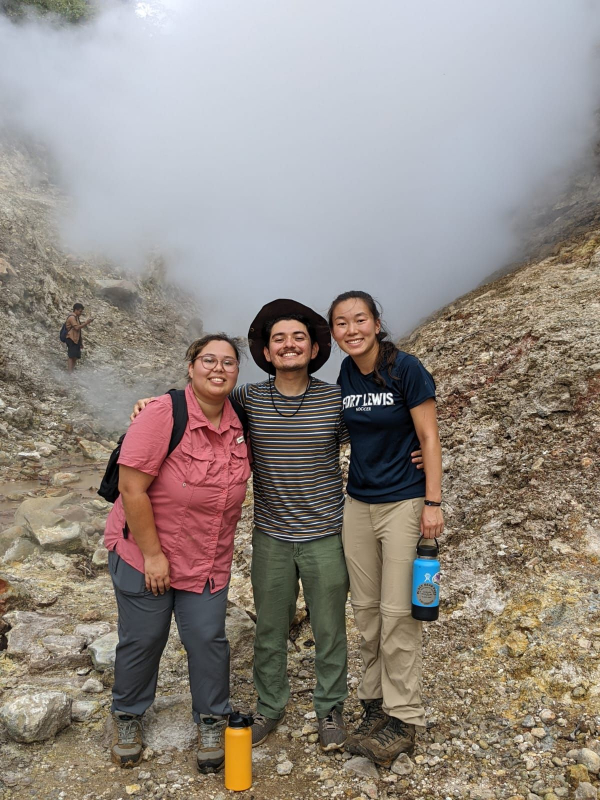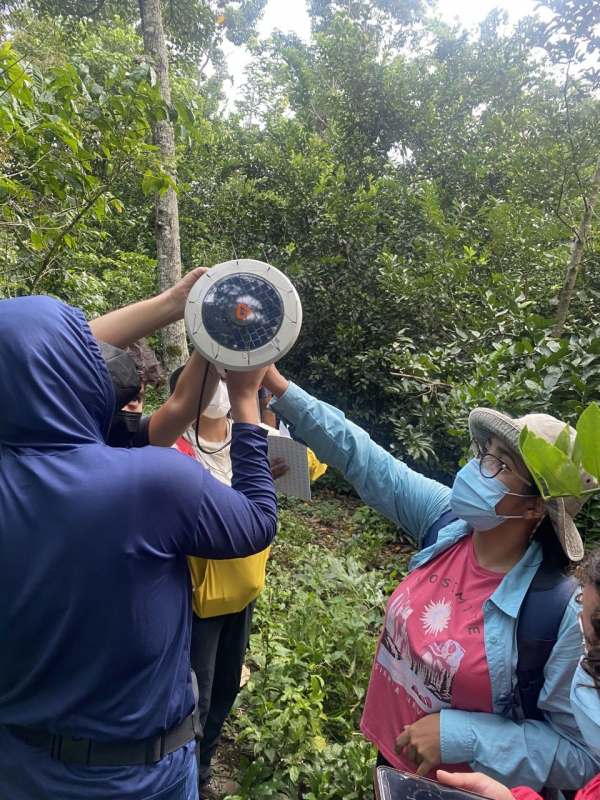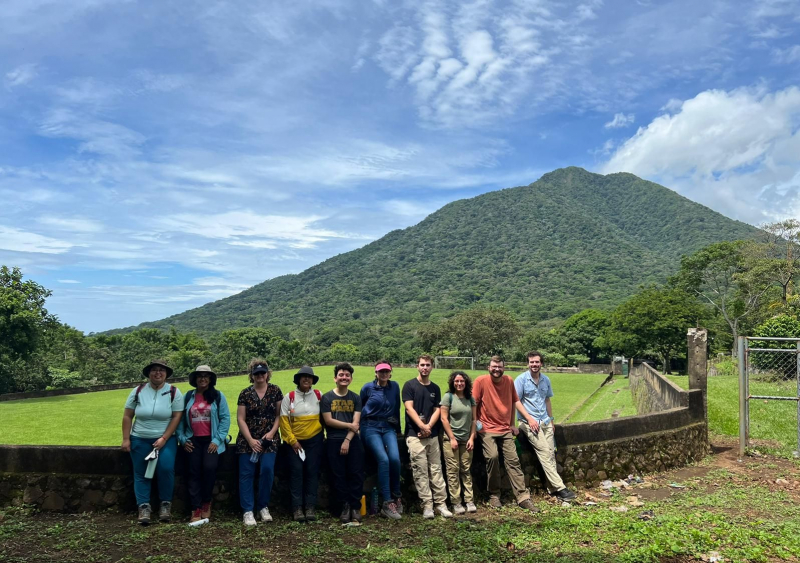For Marcela Strane, a Ph.D. student in the Civil and Environmental Engineering Department at the Cullen College of Engineering, the opportunity to work on a hydrology project in El Salvador during the summer of 2022 was the culmination of several different educational goals.
“It was something important to me because I am Salvadorean, and I wanted to be able to contribute to research where my family is from,” she said. “This was my first extensive experience of fieldwork and I prepared for this by volunteering at the UH Coastal Center working on constructed wetlands, and I spent a week on Sapelo Island doing field work under Dr. Steven Pennings. I've loved conducting fieldwork, and I hope to incorporate it into my own research and career goals.”
Strane went to El Salvador as part of the International Research Experience for Students (IRES) offered by the Michigan Technology University and the Consortium of Universities for the Advancement of Hydrologic Sciences (CUAHSI). She first heard of the program from her undergraduate Hydrology professor at Arizona State University, Enrique Vivoni, Fulton Professor of Hydrosystems Engineering and the Director of the Center for Hydrologic Innovations.
“He talked me through many options and about his experiences because he has taught and done research with an international focus,” she said. “He ended up sharing the IRES: El Salvador program announcement with me and I joined CUAHSI and applied.”
Strane initially applied for an earlier cohort, but decided to delay because of concerns about the global pandemic and needing time to adjust to graduate school. However, she was still intent on doing the program in the future, and completed courses at UH – Disaster Management, and GIS for Engineers – that would enhance her experience.
Strane described her work in El Salvador as impactful for her own development.
“I want to work in the public sector or for a government agency, and in El Salvador, we interacted with many stakeholders, including resident communities, Lutheran World Relief, Civil Protection, the University of El Salvador, the Ministry of the Environment & Natural Resources, the Ministry of Agriculture, and the mayor’s office of the municipality we lived in,” she said. “I learned a lot from the people I worked and interacted with, and I am adding this to my toolbox to use in the future working with local, state and federal agencies. It felt important to get this experience to get a glimpse of what this would be as an industry practice.”
Strane said she was able to draw a direct line from classroom teachings to work in the field.
“Some of the specific tasks we did in the field took the concepts I learned in the classroom, specifically Hydrology at the graduate level under Dr. Hanadi Rifai, and brought them to life,” she said. “We ran a pump test at a farm, sampled and studied wells and aquifers, collected rainwater, installed weather stations, and interviewed communities on water use to obtain ethnographic and qualitative data, most of it in Spanish. I was so grateful to have the opportunity to communicate Engineering and Earth Sciences in Spanish, as I want to one day develop education materials with the EPA or NOAA in Spanish.”
A Houston native, Strane said she has always loved nature and knew she wanted to be a scientist from the second grade. She is a graduate of the Challenge Early College High School, which includes concurrent enrollment at Houston Community College for an associates degree in Science, Technology and Education.
“My parents really wanted me to go to Challenge and so I did, and it was the best decision for me,” she said. “I had some of the best professors at HCC, and it was manageable with my high school classes. I started figuring out I wanted to pursue either environmental law or environmental engineering and began applying to college programs. I also wanted to move away from home and live somewhere different. ASU’s program is phenomenal – it gave me a scholarship, accepted my credits, and allowed me to live away from home and experience a real 'college experience.'”
Strane chose UH for her doctoral studies in Environmental Engineering because of its proximity to home, after four years at ASU earning her Bachelor of Engineering in Environmental Engineering, and because of the professors she could work with.
“I wanted to come back to be closer to my brothers, my nieces and nephews, my parents, and my best friends who lived here or moved back,” she said. “There are many great reasons to be living in a major city like Houston, and I missed the lush greenery, coastal life and amazing food. The desert wasn’t my favorite scenery, but Arizona did introduce me to being an outdoorsy 'granola' girl.”
She added, “The second major reason was that the professors I wanted to work with wanted to take a chance on pursuing my project idea. When I was applying to programs I interviewed and toured places that had established projects that were great, but I wasn’t passionate about them. My undergraduate research was focused on a different type of environmental problem, and I wanted to pursue something completely different, even if I didn’t have the complete skillset for it. UH was the place for me to do that. I'm passionate about microplastic transport into wetlands, and at UH I can make that study interdisciplinary to help me achieve my career path goals.”
